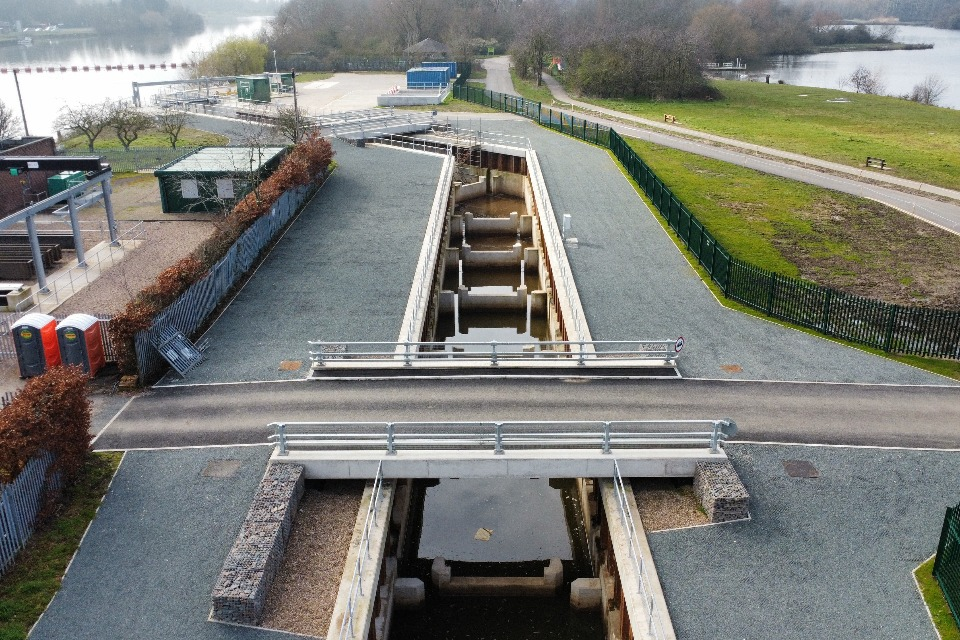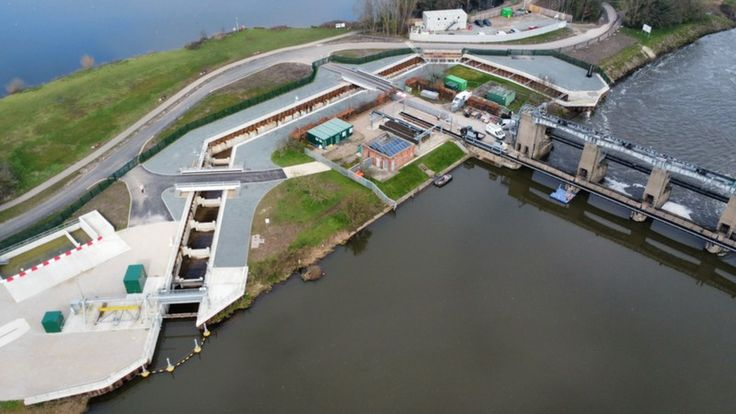The Environment Agency’s £12m flagship project in the Colwick Country Park was officially opened last week by Chair of the Environment Agency, Alan Lovell.
It opens up the River Trent and its tributaries for migratory fish, including salmon, trout and eels, making more habitat accessible for fish.
After two years in construction the Colwick (Holme Sluices) fish pass was completed earlier this year. Fish are now able to reach their spawning and feeding grounds.
Steve Lawrie, Area Environment Manager at the Environment Agency said:
“We have held the official opening of this major project with our partner Nottingham City Council, at the site of the fish pass in the council’s Colwick Country Park.
“The fish pass provides a significant step in restoring the River Trent catchment to its former glory for salmon and other coarse and migratory fish. It also includes an eel pass to help support the critically endangered European eel.
“We also have a public viewing platform above the water, with highly visual interpretation boards. They inform and advise visitors about the local wildlife in and around the river, including the fish that are expected to use the pass.”

The Colwick fish pass has been completed as part of the Environment Agency’s work to improve fish passage across the country. It is 200 metres long, 6 metres deep and 6.5 metres wide.
Fish can now navigate past the Environment Agency-owned Holme Sluices that were built in the 1950s. It forms part of a large-scale flood defence scheme and helps to protect Nottingham from flooding.
The fish pass includes a 2-metre-high fully automated radial gate which constantly monitors the water levels and flow rates in the River Trent. The pass will then open and close based on the differing water levels throughout the year.
The pass is divided into 20 ascending chambers into which water flows through narrow slots. Fish of all species can swim upstream to lay their eggs in the gravel riverbeds of the Trent tributaries such as the River Dove and the River Derwent. They will be able to pass through these slots and rest in the chamber above before continuing.
The direct environmental benefits of the fish pass will be £18.6m. This includes 60 kilometres of river improvement from poor to good status for fish, as well as 60 kilometres of new spawning habitat immediately upstream of the barrier. It will also aid interconnectivity with numerous other fish passage schemes previously constructed upstream by the Environment Agency.
The decline of migratory fish in the Trent catchment dates back to the Industrial Revolution, when large weirs were built to open up the river for trade. While some fish were able to overcome these barriers not all of them could.
The Environment Agency fisheries service has a statutory duty to maintain, improve and develop migratory and freshwater fisheries as set out in the Environment Act 1995.



